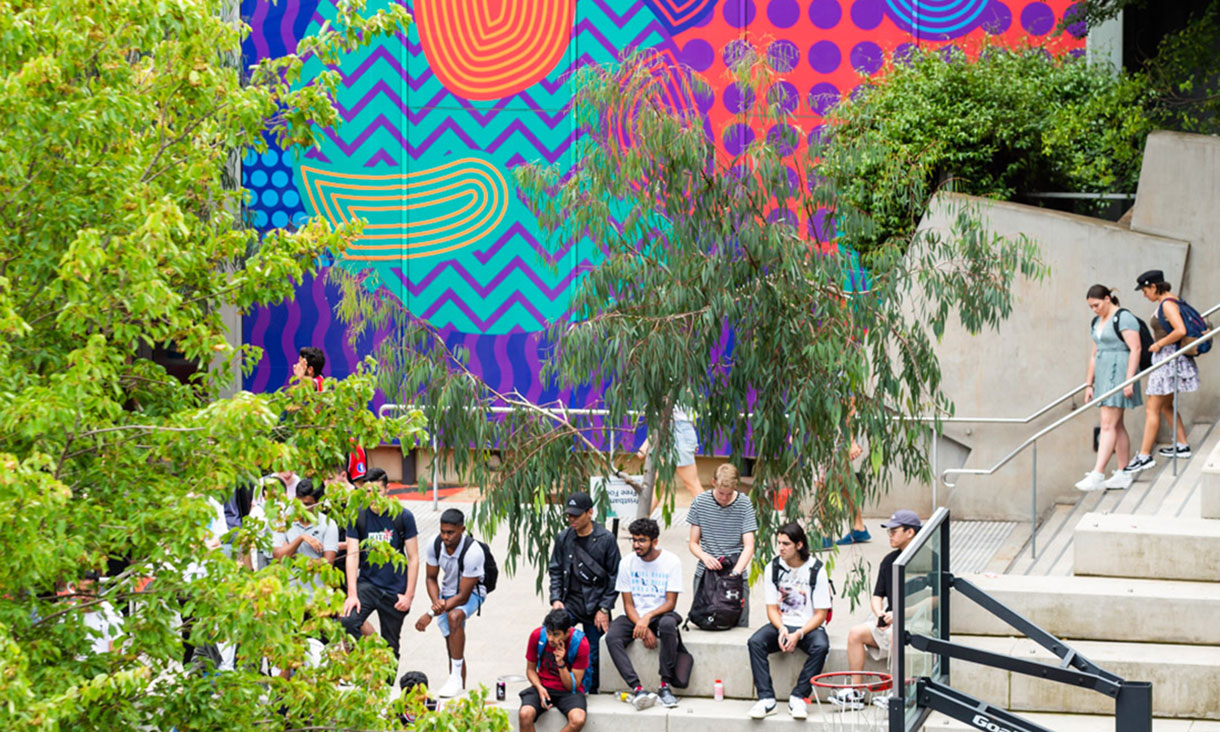Sustainability

RMIT is committed to the practice of incorporating sustainability principles and practices into our learning and teaching, research and operational activities. The University aims to demonstrate global leadership through the initiatives we undertake and in the way we empower our students, staff, community and industry.
RMIT University is a public institution under Victorian law and stands on Aboriginal Country of the Kulin Nation. RMIT recognises and acknowledges the Bundjil Statement, which helps all RMIT community to respectfully work, live and study on Aboriginal Country through a dhumbali (commitment) to not harm the wurneet (waterways), biik biik (lands) and bubups (children) of Bundjil. RMIT supports the rights and the self-determination of Indigenous peoples and acknowledges the importance of Indigenous knowledge in preserving and protecting place for current and future generations.
RMIT has a strong governance structure in place to make sustainability an organisational priority and that decision making reflects the University's values.
The RMIT-wide SDGs Project, initiated in June 2018, aims to improve University accountability in relation to its contributions to the SDGs.
RMIT is a global leader in climate action, taking practical steps and innovative projects to become carbon neutral by 2025 and adapting to climate risks.
RMIT University is committed to leading the shift into a circular economy that values resources and thinks holistically about our systems, processes and supply chains.
RMIT aims to create sustainable and inclusive spaces that enhance the experience and wellbeing of our people and have a positive impact on our surrounding environment and society.
RMIT is committed to reducing water use intensity across our campuses, through a focus on efficiency, harvesting and reuse.
RMIT focuses on creating a great campus life, where choosing sustainable options is easy for our students, staff and wider community, including transport and retail.
RMIT is committed to widespread engagement across the community of students and staff to encourage the adoption of sustainable practices and outcomes.

RMIT’s campuses have a range of open and green spaces which are accessible to the general public free of charge.
A toolkit to help fashion businesses build better strategies for a sustainable future and a prosthetic leg for amputee motorcyclists designed by RMIT graduates were praised at the 2023 Victorian Premier’s Design Awards.
Just 11% of the ASX 200 listed companies comprehensively disclosed how sustainable their sourcing practices were in 2022, according to a new index that could help Australians make more informed purchasing and investment decisions.
A global team of researchers and industry collaborators led by RMIT University has invented recyclable ‘water batteries’ that won’t catch fire or explode.
Researchers from RMIT University are using nanodiamonds to create smart textiles that can cool people down faster.
Please feel free to contact us to directly via sustainability@rmit.edu.au.
Acknowledgement of Country
RMIT University acknowledges the people of the Woi wurrung and Boon wurrung language groups of the eastern Kulin Nation on whose unceded lands we conduct the business of the University. RMIT University respectfully acknowledges their Ancestors and Elders, past and present. RMIT also acknowledges the Traditional Custodians and their Ancestors of the lands and waters across Australia where we conduct our business - Artwork 'Luwaytini' by Mark Cleaver, Palawa.
Acknowledgement of Country
RMIT University acknowledges the people of the Woi wurrung and Boon wurrung language groups of the eastern Kulin Nation on whose unceded lands we conduct the business of the University. RMIT University respectfully acknowledges their Ancestors and Elders, past and present. RMIT also acknowledges the Traditional Custodians and their Ancestors of the lands and waters across Australia where we conduct our business.